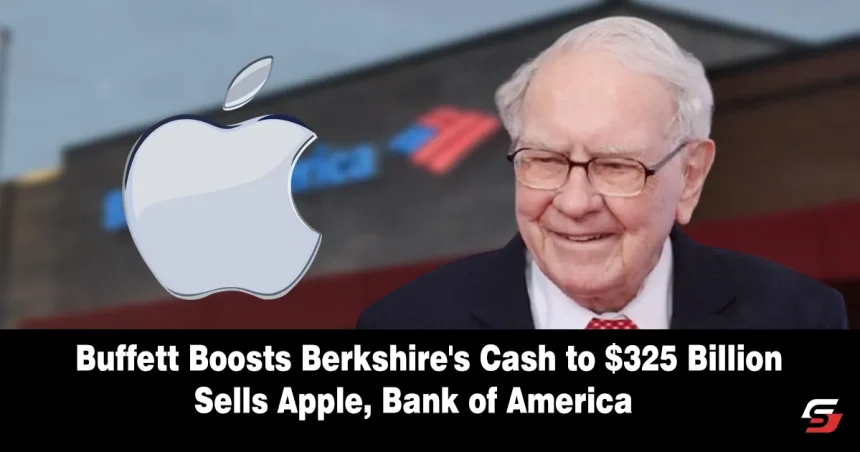Buffett raises Berkshire’s cash to $325 billion, trims Apple, Bank stocks amid rising liabilities, insurance losses, and currency challenges.
Reducing Apple and Bank of America holdings in rising insurance and currency losses, Buffett enhances Berkshire’s cash to a record $325 billion.
Cutting Apple and Bank of America’s shares significantly to bring their cash reserves to an all-time high of $325.2 billion, Warren Buffett and Berkshire Hathaway pulled back from stocks in Q3.
Impacted by higher insurance liabilities due to Hurricane Helene and losses from a stronger U.S. dollar, Berkshire noted a 6% drop in quarterly operating profit. The sales included a large portion of $36.1 billion in stocks sold in the third quarter.
Partial sales were justified by potential tax increases on gains, although Buffett noted in May that Apple would stay Berkshire’s largest investment. Marking an eighth consecutive quarter as a net seller, Berkshire bought just $1.5 billion in stocks.
Down from $10.76 billion a year earlier, operating profit from Berkshire’s diverse businesses declined to $10.09 billion, or $7,019 per Class A share. $565 million in Hurricane Helene losses, and a settlement with defunct talc supplier Whittaker Clark & Daniels, insurance profit dropped 69%, weighed by rising claims. Increased Geico underwriting profit helped offset some losses.
Largely from Hurricane Milton’s impact on Florida in October, Berkshire also highlights $1.3 billion to $1.5 billion in pre-tax losses in Q4.
From a $12.77 billion loss a year prior, delineating Berkshire’s unrealized investment gains, net income rose to $26.25 billion, or $18,272 per Class A share. Given accounting rules require reporting unrealized gains and losses, adding volatility, Buffett provokes investors to focus on operating results for a clearer view of performance.
In the future, Buffett, 94, at Berkshire’s helm since 1965, is supposed to transition leadership to Vice Chairman Greg Abel, 62. Berkshire’s holdings include Berkshire Hathaway Energy, multiple industrial firms, real estate, and retail brands like Dairy Queen and Fruit of the Loom.


